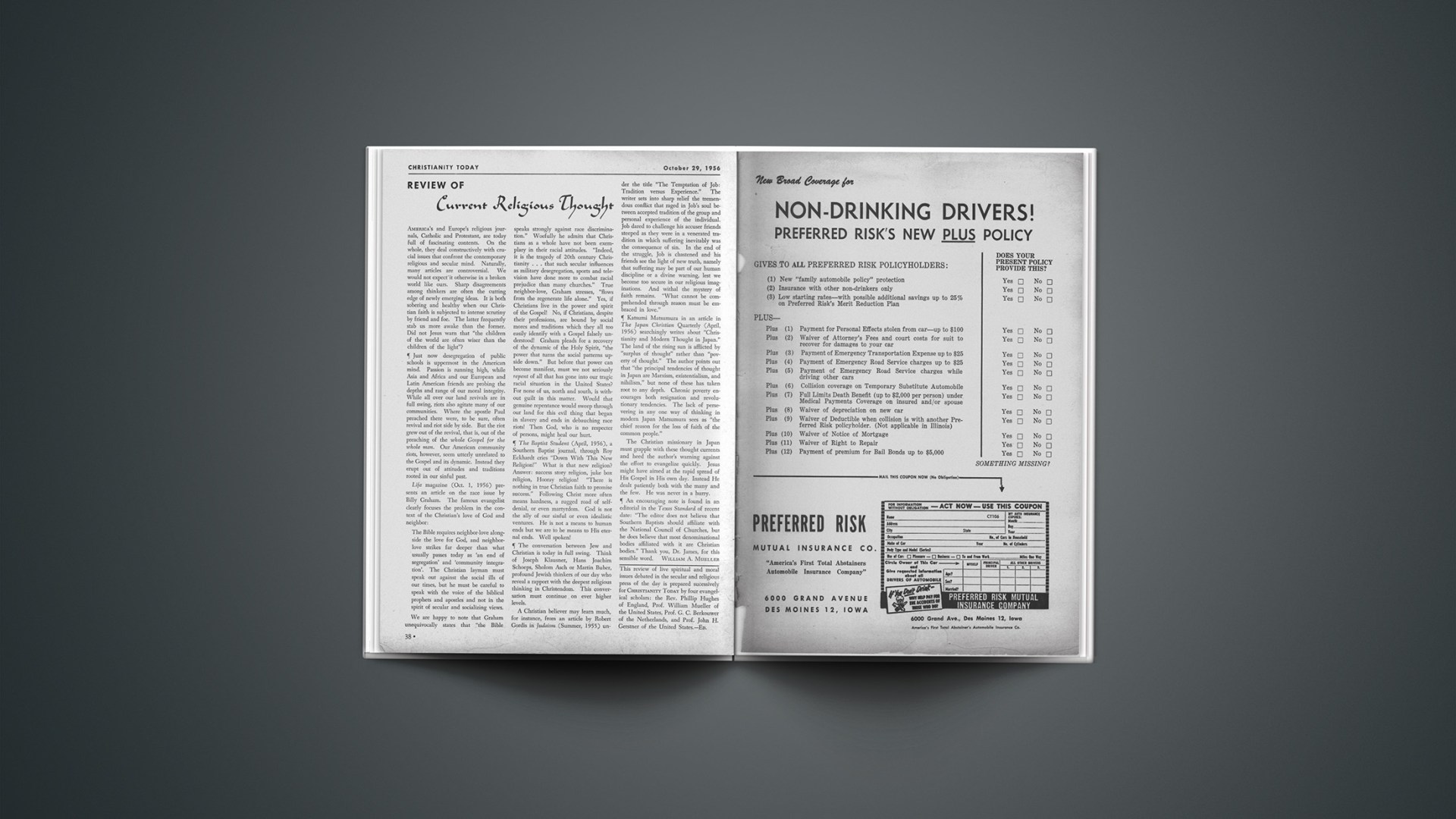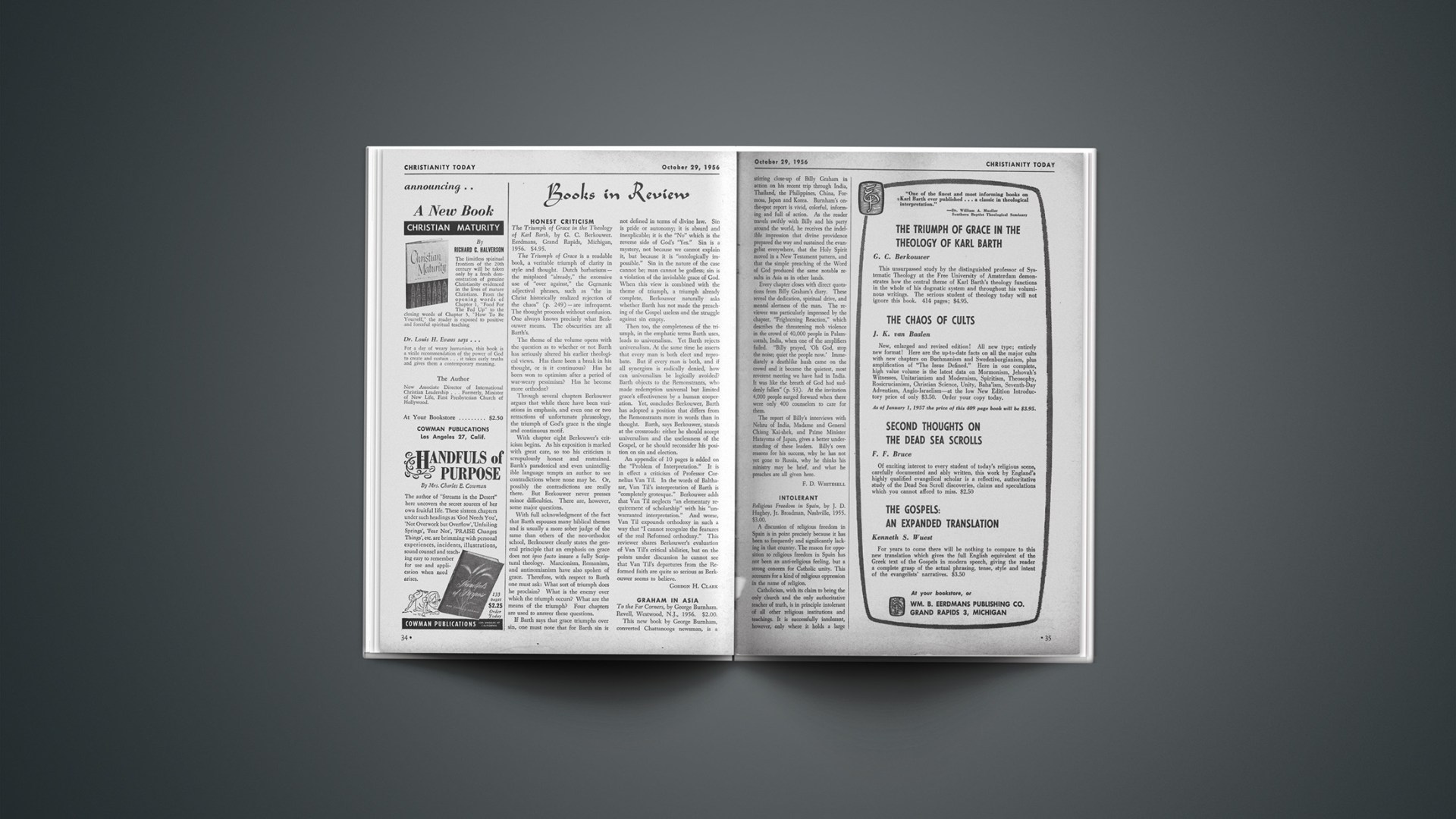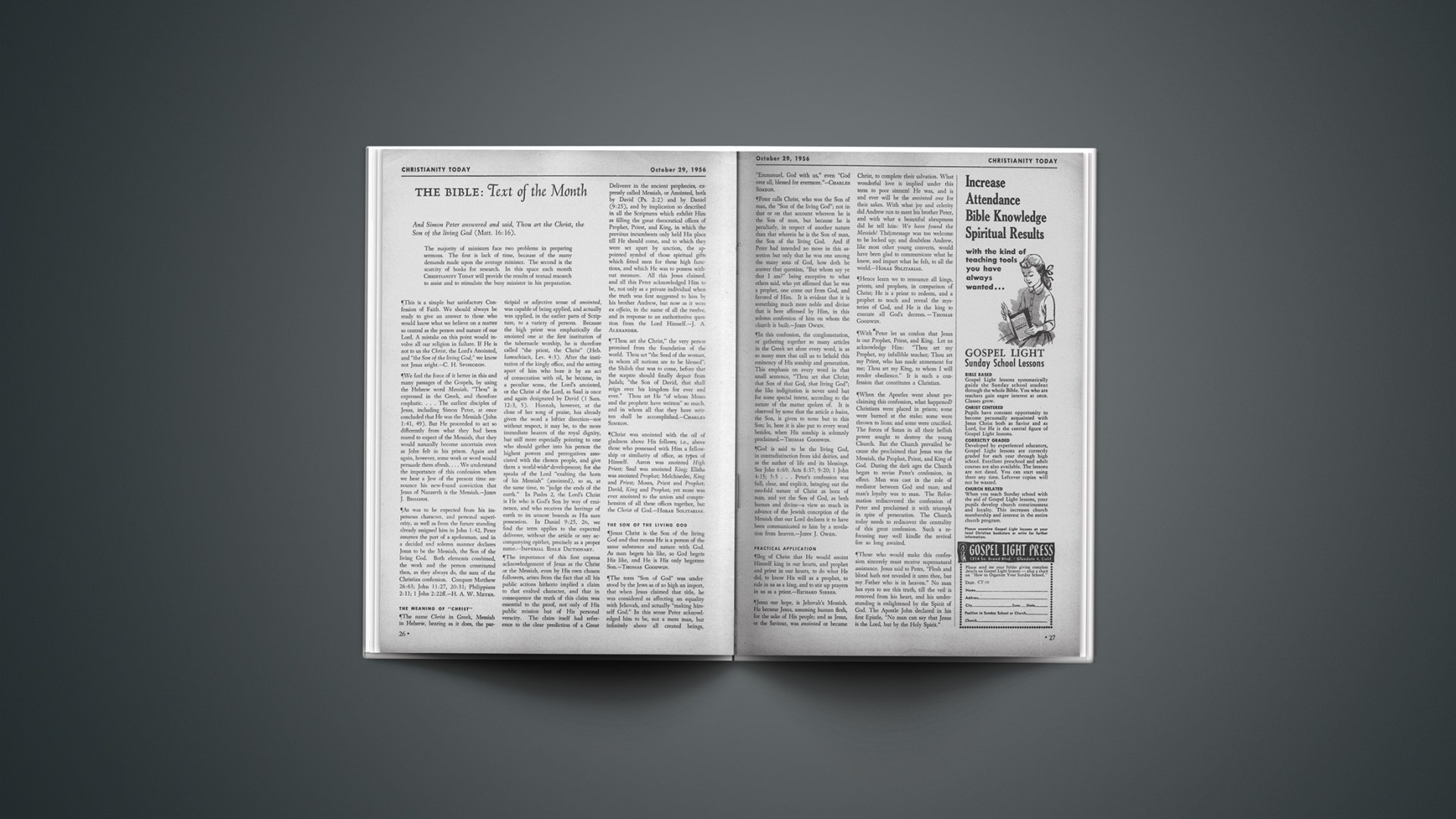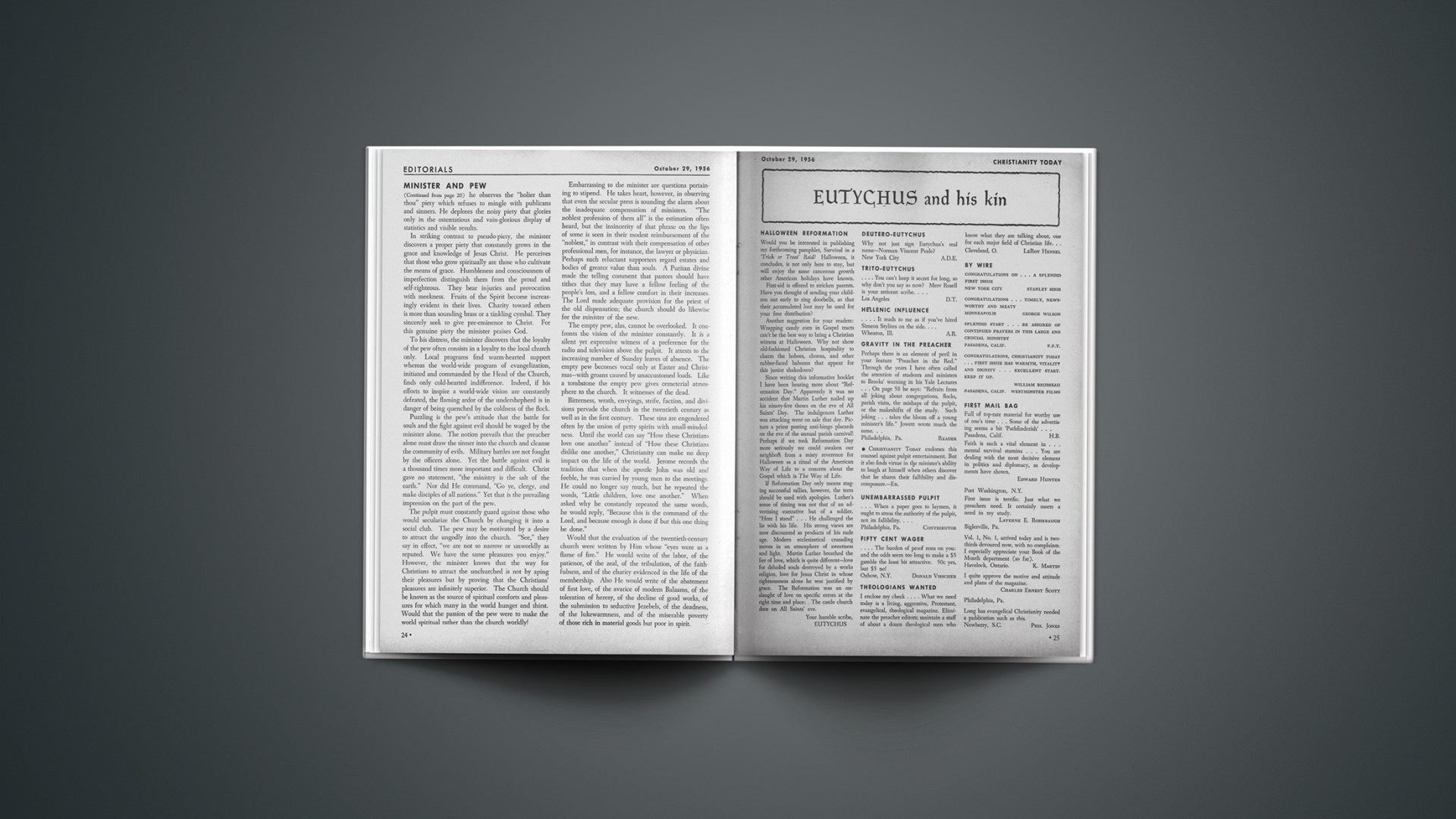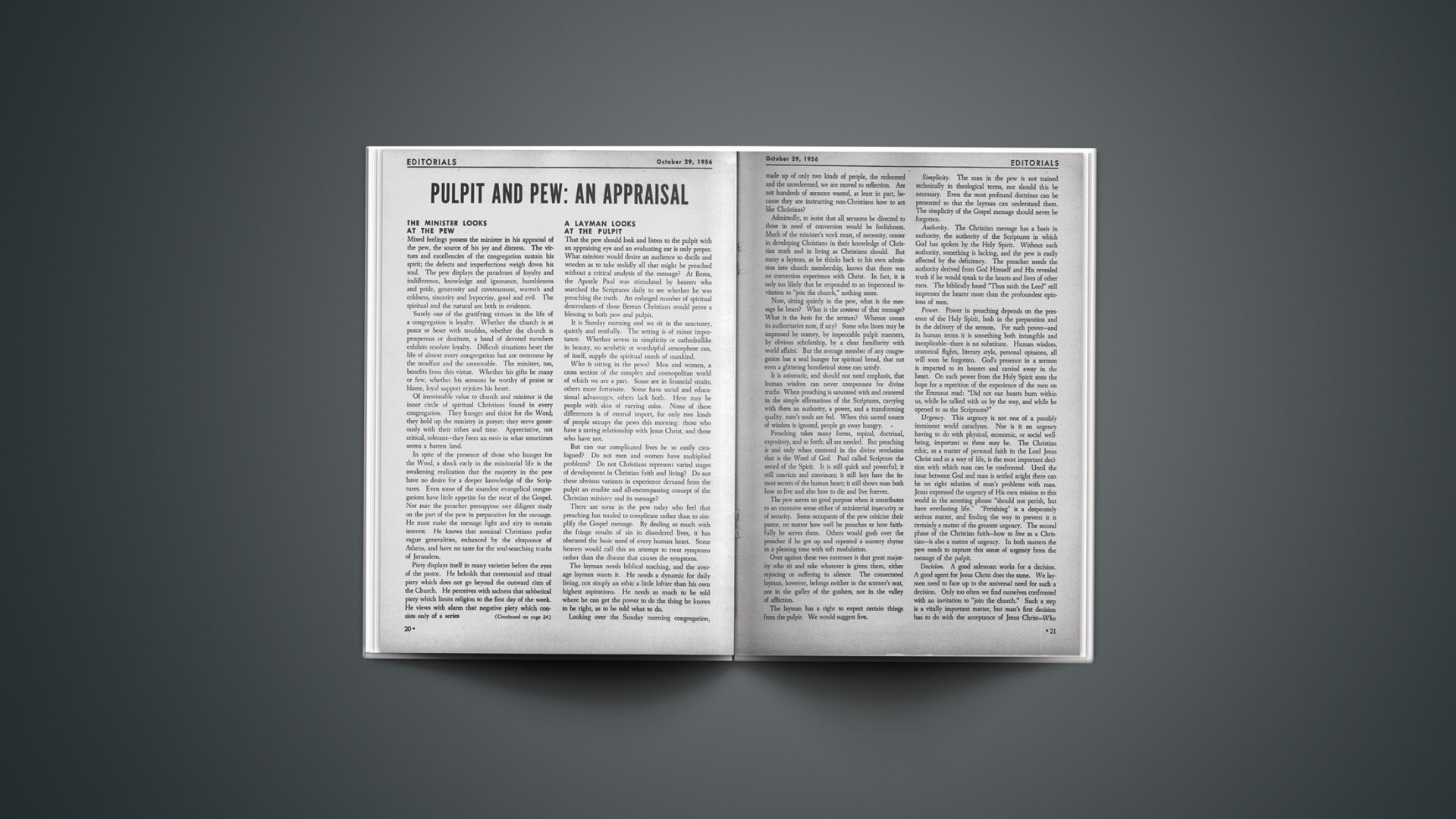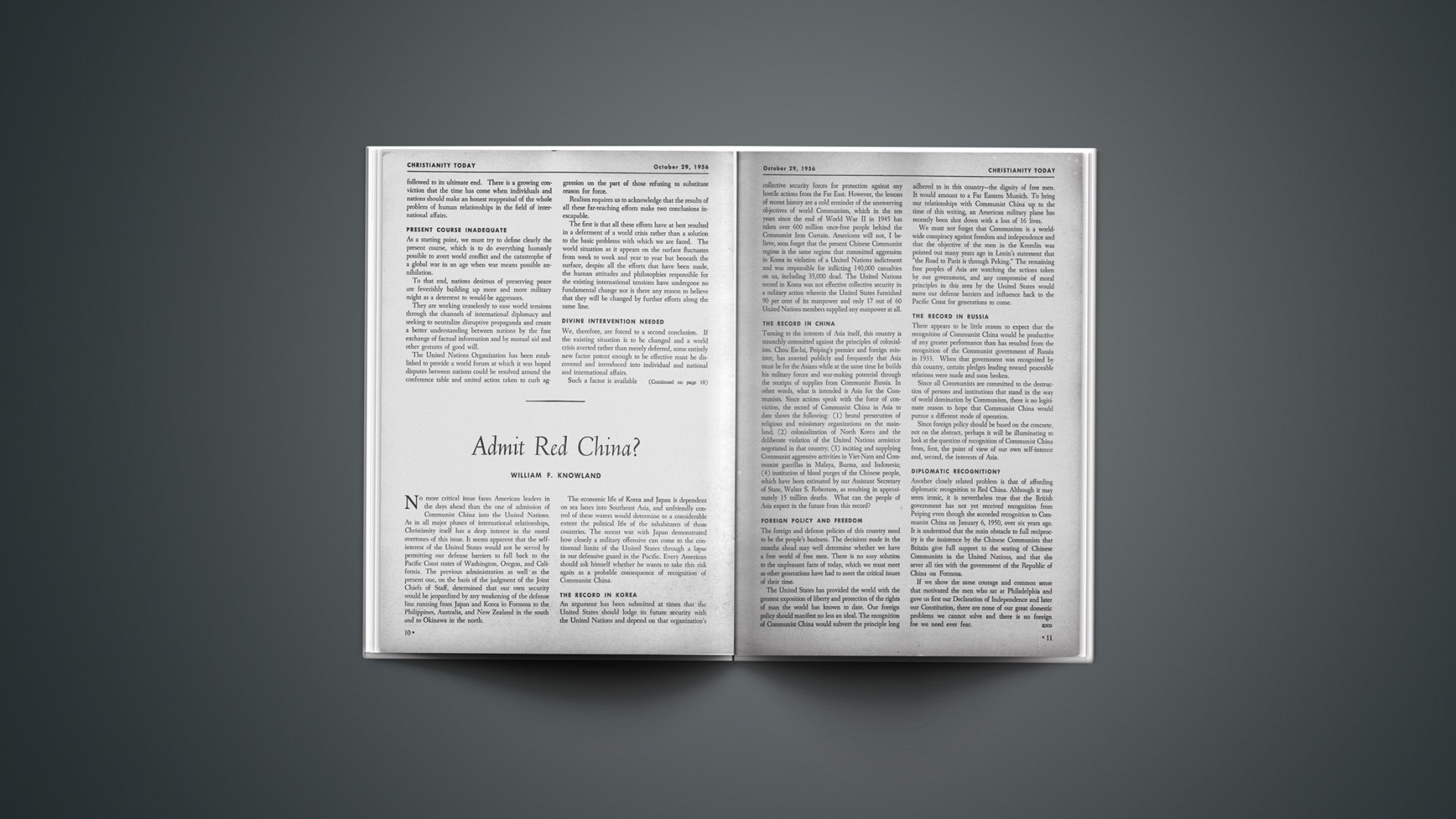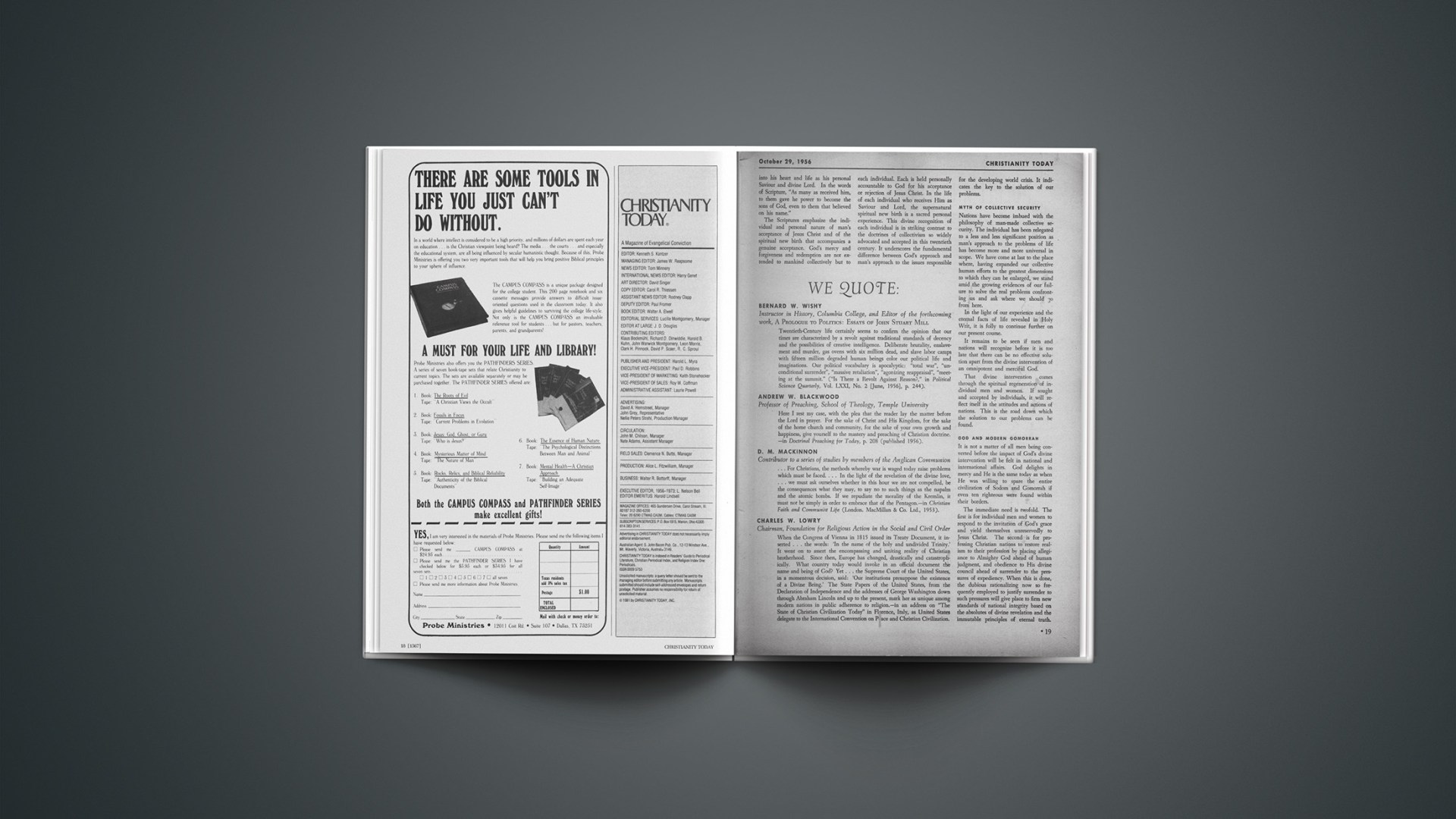America’s and Europe’s religious journals, Catholic and Protestant, are today full of fascinating contents. On the whole, they deal constructively with crucial issues that confront the contemporary religious and secular mind. Naturally, many articles are controversial. We would not expect it otherwise in a broken world like ours. Sharp disagreements among thinkers are often the cutting edge of newly emerging ideas. It is both sobering and healthy when our Christian faith is subjected to intense scrutiny by friend and foe. The latter frequently stab us more awake than the former. Did not Jesus warn that “the children of the world are often wiser than the children of the light”?
Just now desegregation of public schools is uppermost in the American mind. Passion is running high, while Asia and Africa and our European and Latin American friends are probing the depths and range of our moral integrity. While all over our land revivals are in full swing, riots also agitate many of our communities. Where the apostle Paul preached there were, to be sure, often revival and riot side by side. But the riot grew out of the revival, that is, out of the preaching of the whole Gospel for the whole man. Our American community riots, however, seem utterly unrelated to the Gospel and its dynamic. Instead they erupt out of attitudes and traditions rooted in our sinful past.
Life magazine (Oct. 1, 1956) presents an article on the race issue by Billy Graham. The famous evangelist clearly focuses the problem in the context of the Christian’s love of God and neighbor:
The Bible requires neighbor-love alongside the love for God, and neighbor-love strikes far deeper than what usually passes today as ‘an end of segregation’ and ‘community integration’. The Christian layman must speak out against the social ills of our times, but he must be careful to speak with the voice of the biblical prophets and apostles and not in the spirit of secular and socializing views.
We are happy to note that Graham unequivocally states that “the Bible speaks strongly against race discrimination.” Woefully he admits that Christians as a whole have not been exemplary in their racial attitudes. “Indeed, it is the tragedy of 20th century Christianity … that such secular influences as military desegregation, sports and television have done more to combat racial prejudice than many churches.” True neighbor-love, Graham stresses, “flows from the regenerate life alone.” Yes, if Christians live in the power and spirit of the Gospel! No, if Christians, despite their professions, are bound by social mores and traditions which they all too easily identify with a Gospel falsely understood! Graham pleads for a recovery of the dynamic of the Holy Spirit, “the power that turns the social patterns upside down.” But before that power can become manifest, must we not seriously repent of all that has gone into our tragic racial situation in the United States? For none of us, north and south, is without guilt in this matter. Would that genuine repentance would sweep through our land for this evil thing that began in slavery and ends in debauching race riots! Then God, who is no respecter of persons, might heal our hurt.
The Baptist Student (April, 1956), a Southern Baptist journal, through Roy Eckhardt cries “Down With This New Religion!” What is that new religion? Answer: success story religion, juke box religion, Hooray religion! “There is nothing in true Christian faith to promise success.” Following Christ more often means hardness, a rugged road of self-denial, or even martyrdom. God is not the ally of our sinful or even idealistic ventures. He is not a means to human ends but we are to be means to His eternal ends. Well spoken!
The conversation between Jew and Christian is today in full swing. Think of Joseph Klausner, Hans Joachim Schoeps, Sholom Asch or Martin Buber, profound Jewish thinkers of our day who reveal a rapport with the deepest religious thinking in Christendom. This conversation must continue on ever higher levels.
A Christian believer may learn much, for instance, from an article by Robert Gordis in Judaism (Summer, 1955) under the title “The Temptation of Job: Tradition versus Experience.” The writer sets into sharp relief the tremendous conflict that raged in Job’s soul between accepted tradition of the group and personal experience of the individual. Job dared to challenge his accuser friends steeped as they were in a venerated tradition in which suffering inevitably was the consequence of sin. In the end of the struggle, Job is chastened and his friends see the light of new truth, namely that suffering may be part of our human discipline or a divine warning, lest we become too secure in our religious imaginations. And withal the mystery of faith remains. “What cannot be comprehended through reason must be embraced in love.”
Katsumi Matsumura in an article in The Japan Christian Quarterly (April, 1956) searchingly writes about “Christianity and Modern Thought in Japan.” The land of the rising sun is afflicted by “surplus of thought” rather than “poverty of thought.” The author points out that “the principal tendencies of thought in Japan are Marxism, existentialism, and nihilism,” but none of these has taken root to any depth. Chronic poverty encourages both resignation and revolutionary tendencies. The lack of persevering in any one way of thinking in modern Japan Matsumura sees as “the chief reason for the loss of faith of the common people.”
The Christian missionary in Japan must grapple with these thought currents and heed the author’s warning against the effort to evangelize quickly. Jesus might have aimed at the rapid spread of His Gospel in His own day. Instead He dealt patiently both with the many and the few. He was never in a hurry.
An encouraging note is found in an editorial in the Texas Standard of recent date: “The editor does not believe that Southern Baptists should affiliate with the National Council of Churches, but he does believe that most denominational bodies affiliated with it are Christian bodies.” Thank you, Dr. James, for this sensible word.
This review of live spiritual and moral issues debated in the secular and religious press of the day is prepared sucessively for CHRISTIANITY TODAY by four evangelical scholars: the Rev. Phillip Hughes of England, Prof. William Mueller of the United States, Prof. G. C. Berkouwer of the Netherlands, and Prof. John H. Gerstner of the United States.—ED.

